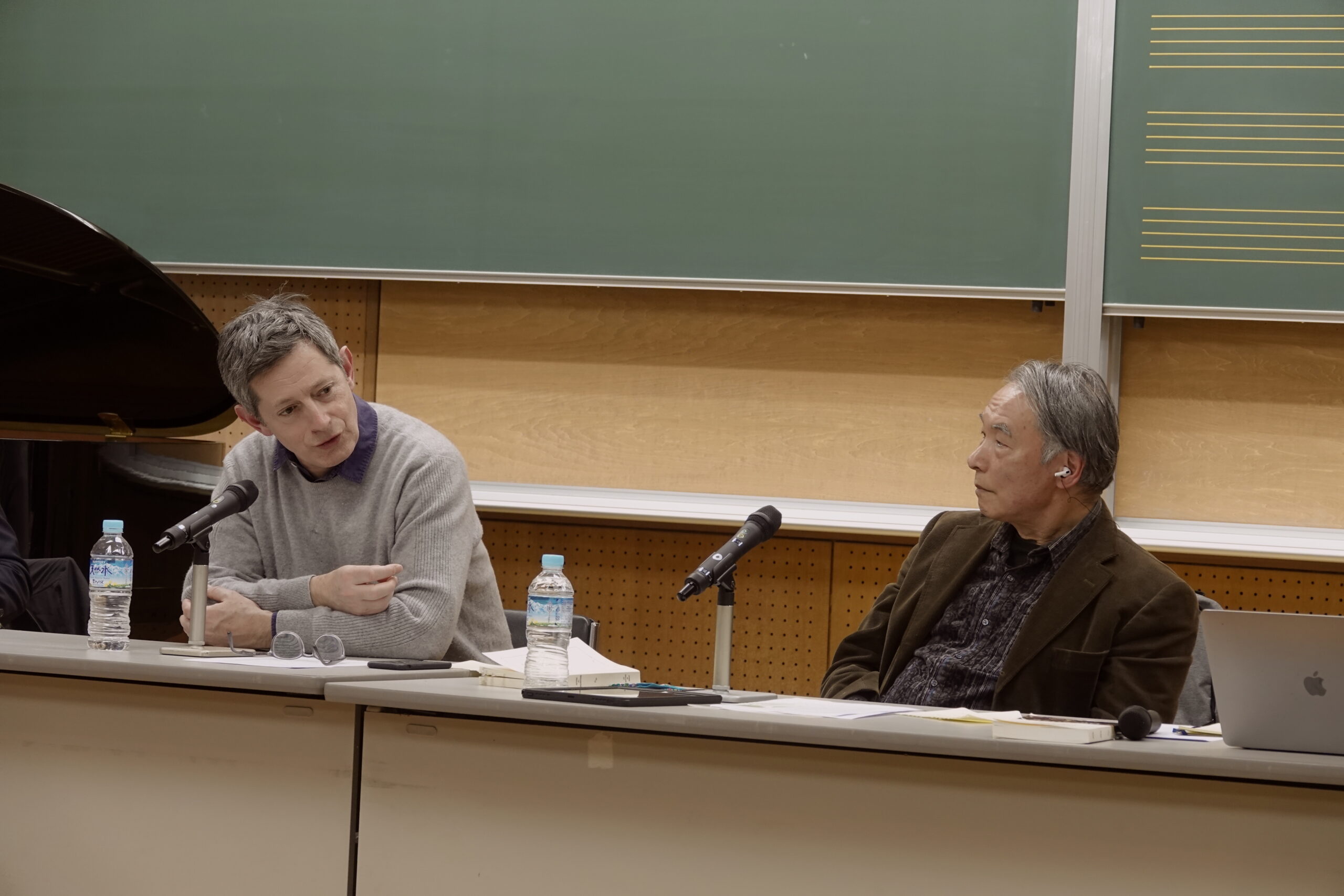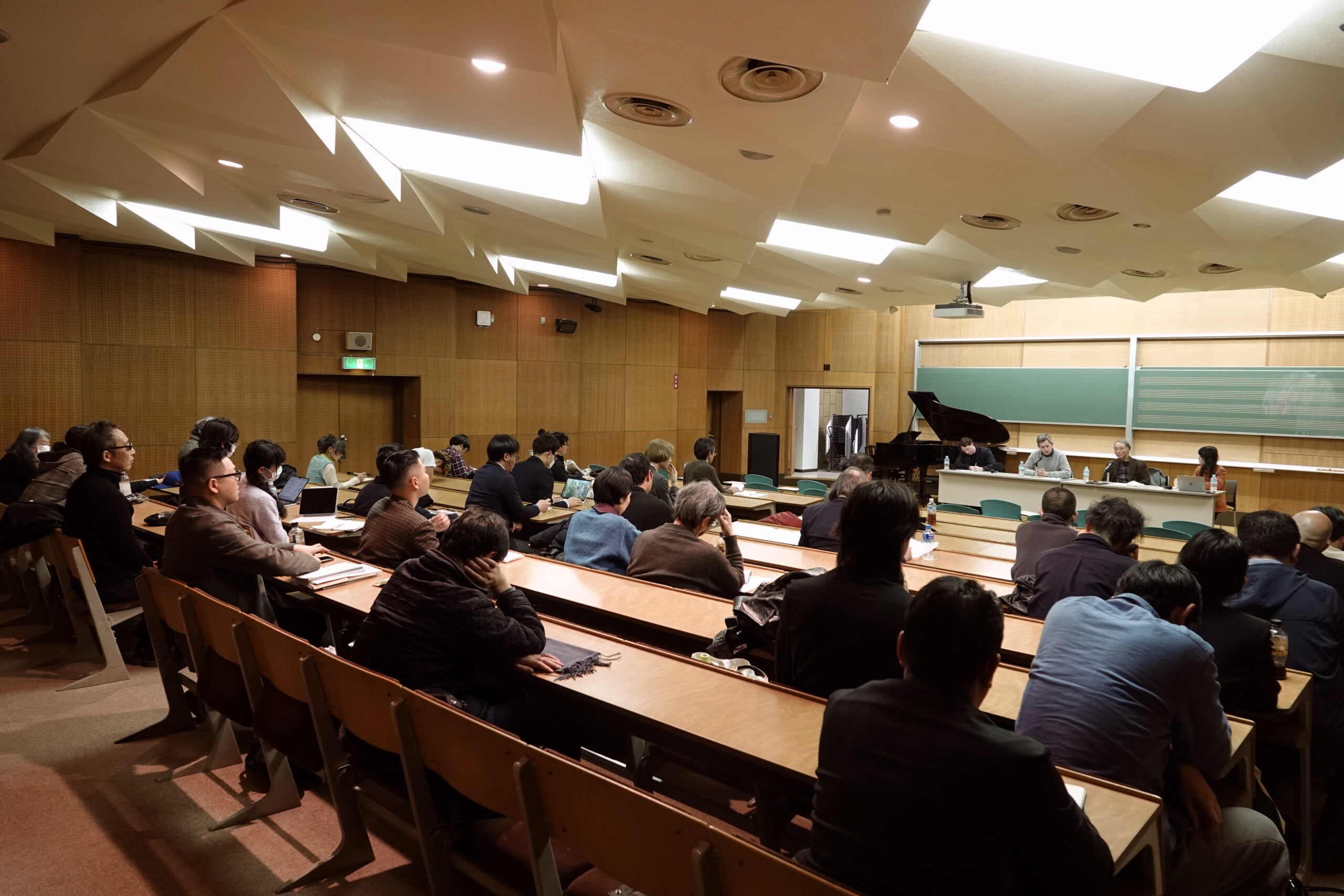On Thursday, March 6, 2025, at 5:00 PM, a dialogue between David Lapoujade and Kunichi Uno took place at the Auditorium of the Administration Office on the Komaba Campus of the University of Tokyo. How can we reread Deleuze now? This was our start point of this project following the publication of Deleuze’s lecture series. As both speakers had attended his actual lectures in the 1970s and 1980s—at different times—, they freely shared their insights. The interpreter was Romaric Jannel, and the moderator was Hanako Takayama.
The conversation began with Professor Uno, who explained that only about a quarter to a fifth of Deleuze’s lectures had been included in the published books. He noted that in the first lecture in 1981, focusing on painting, Deleuze examined the process of the color emergence, rooted in the works of Cézanne and Klee, and how this process mirrors the emergence of philosophy itself. Professor Uno emphasized that Deleuze, who famously disliked conversation and discussion, considered the lectures an exception. His remarks then turned to a recall of what these lectures were like. Professor Lapoujade shared that Deleuze’s lectures were accessible to those without prior knowledge of philosophy, and the image of the “idiot” was an important element in his philosophy.
Next, Professor Uno rose a question regarding how, in his own work on Deleuze, Lapoujade presents him as a relentless logician. Drawing on Deleuze’s reference to Wittgenstein as the “assassin of philosophy” in Abécédaire, Professor Uno asked how one might understand the characteristic of “logic” in Deleuze’s work. Then Professor Lapoujade reflected on Deleuze’s engagement with 17th-century philosophy, especially with Leibniz and Spinoza, noting that, although their logics differed from rationalism, they still operated in ways Deleuze obsessively traced. This pursuit was also the foundation of Deleuze’s critique of structuralism. Professor Lapoujade emphasized how Deleuze sought to find logic even in the primitive and in madness. The conversation then moved on to discussions of the concept of the “machine,” introduced by Guattari, and Deleuze’s thoughts on the non-linguistic realms surrounding “signs” and on objects of thought beyond segmented languages like painting and film. The discussion touched on fascinating ideas such as how the thoughts of Spinoza and Leibniz could coexist in a miraculous way.
This event offered a nice opportunity to reexamine Deleuze’s philosophy comprehensively, considering both the history of philosophy and the vibrant essence of individual philosophers he so skillfully grasped.


Reported by Hanako Takayama (EAA Project Lecturer)
Photographed by LIN Ziwei (EAA Research Assistant)








